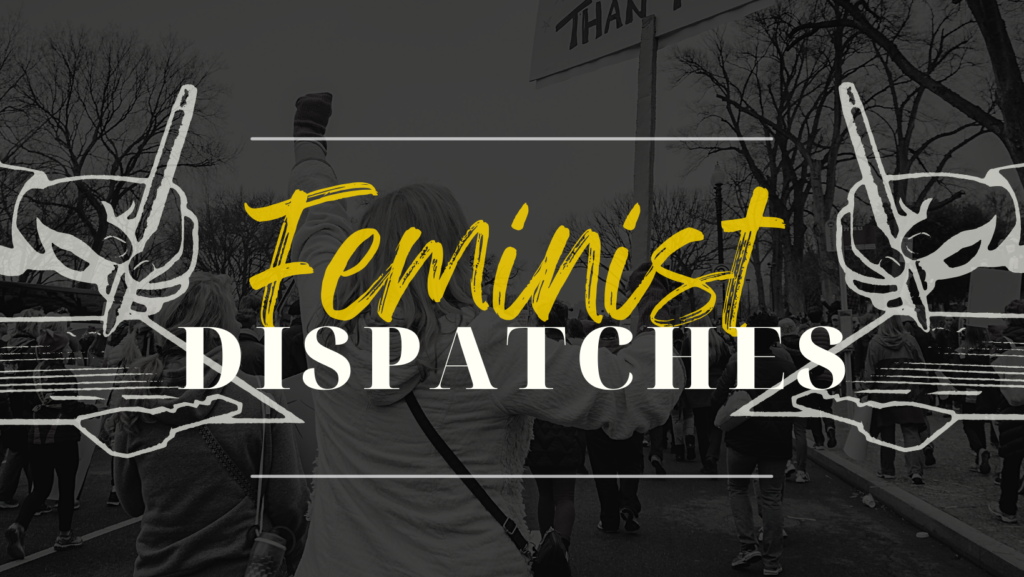Dispatch by Amanda De Lisio

On May 30, 2022, the Critical Trafficking and Sex Work Studies Research Cluster at the Centre for Feminist Research at York University hosted an Asian Heritage Month event. We met to discuss the recent implementation of a new accreditation process in the Town of Newmarket for people in alternative massage, a vague business classification that is used to refer to people that work within the realm of body rub/touch but not Registered as a Massage Therapist in Ontario. With this new “Personal Wellness Establishment” By-law, the Town of Newmarket has required all alternative massage businesses to submit documentation of accreditation from a Canadian institution to be licensed and to refrain from any service that is said to “appeal to erotic or sexual appetites”. The event was co-sponsored by Butterfly (Asian and Migrant Sex Workers Support Network), the Chinese Canadian National Council Toronto Chapter (CCNCTO), Coast to Coast Chinatowns Against Displacement (C2C), Friends of Chinatown Toronto (FOCT), the Institute for Feminist Legal Studies (IFLS), Red Canary Song, the School of Social Work (McMaster University), and the Transnational Law and Justice Network (TLJN). Together, these voices come together to layer the lived realities of enforcement on im/migrant Asian women in alternative massage with a broader discussion of current scholarship on anti-Asian state-sanctioned violence.
The panel started with a conversation from im/migrant and Asian women involved in alternative massage in Newmarket and the Greater Toronto Area, who shared their experiences of work and the difficult, everyday consequences of the new law on their working and home life. Next, Elene Lam, the executive director of Butterfly: the Migrant and Asian Sex Workers Support Network discussed the impact of by-law enforcement on Asian massage businesses in Vancouver, York Region, Ottawa, Hamilton, and Toronto.1 Stringent by-law enforcement meant the arrest of more than a hundred Asian people, mainly women; some even deported. Drawing on this and other similar events, Elene argued that licensure is a form of systematic racism, since this legal framework is used to label white, middle class massage businesses reputable, allowing them to remain in operation, whereas Asian, low-income businesses are eliminated. We learned more about the uneven impact of distinct but related anti-trafficking policies in Canada and their effects on racialized, low-income women with Karen Campbell, the Director of Community Initiatives and Policy at the Canadian Women’s Foundation.2 Campbell observed that the sensationalized images of racialized, low-income women that are often propagated within anti-trafficking rhetoric create moral panics, but do not reflect the lived realities of labour exploitation and coercion. These are not a consequence of individual “bad men” exploiting young vulnerable women, but a result of global inequality and the related, racialized, gendered inequities of the Canadian labour market.3
Research carried out in collaboration with Red Canary Song in New York City, the Massage Parlor Outreach Project in Seattle, Butterfly: the Asian and Migrant Sex Workers Support Network in Toronto and the Brown University Center for the Study of Slavery and Justice in Providence, Rhode Island shows that the Newmarket licencing laws are part of broader racisms and economic inequalities that routinely operate across North America.4 As a co-author on the report, Elena Shih explained, the business category of “illicit massage” is a fiction invented to rationalize police investment and the continued concentration of wealth within economies of “rescue” that do little to empower women’s rights as workers. One notable example was the unfounded claim of human trafficking at one Rhode Island Asian massage parlor that required the owner to forfeit US$650,000 to the local police department and Office of the Attorney General. We then heard Yves Tong Nguyen, a Vietnamese queer disabled abolitionist organizer and cultural worker with Red Canary Song, and Esther Kao from Coast to Coast Chinatowns Against Displacement (C2C). Together, they described the collective action and mutual aid work required to respond to the all-too-familiar realities of anti-Asian and whorephobic economic exploitation, dispossession, and displacement across cities in the United States and Canada.

The attention to im/migrant and Asian women in sex work and alternative massage then shifted to a broader conversation on anti-Asian by-law enforcement throughout Canada. Vincent Wong, Assistant Professor at the University of Windsor Faculty of Law, and PhD Candidate at Osgoode Hall Law School shared his research on punitive and discriminatory policies that sustain racial hierarchies of White Supremacy, tracing present-day racisms to long histories of anti-Asian legislation in Canada. Most notably, Professor Wong described policies, dating back to the 19th century, that policed and patrolled Asian people employed in laundry, restaurant, mining, and professional (pharmacy, law, government, construction, etc.) industries as well as their broader access and movement within municipalities via zoning and public health.5 To add further context to the problematic, economic and racially discriminatory use of law to rewrite urban possibilities in Toronto, Canada, Lorraine Chuen from Friends of Chinatown discussed the displacement of Chinatown for the construction of City Hall and Nathan Philips Square, completed in 1965. The struggles continue today: intersectional solidarity work is needed to fight against contemporary gentrification efforts in Chinatown, the Village and Little Jamaica and deter further real estate speculation in an already unaffordable downtown core.6 Last, Kennes Lin from the Chinese Canadian National Council Toronto Chapter shared recent research on the upsurge of anti-Asian racism and interpersonal violence with COVID-19.7
The panel concluded with Kamala Kempadoo, Professor in the Department of Social Science and Founder of the Critical Trafficking and Sex Work Studies Research Cluster at the Centre for Feminist Research, York University. Professor Kempadoo emphasized the importance of community-based approaches that highlight intersectional feminist activist activities in Asian Heritage Month, especially when hosted on the same week of the International Sex Workers’ Day. Professor Kempadoo joined the other participants in urging all of us to better understand the everyday realities of economic exploitation and coercion that are concealed within more simplistic and often sensationalized trafficking stories.
Special thank you to Fei Kuo for English to Mandarin interpretation!
To learn more about the panel, see also: https://docs.google.com/document/d/1Cc7cpp_Z3TqB6SrkRRXWcqvSkaNzq_zZjFbWlP03wo8/edit?usp=sharing
To learn more about the Critical Trafficking and Sex Work Studies Research Cluster at the Centre for Feminist Research, see: https://www.yorku.ca/cfr/trafficking-and-sex-work/
Listen to the full audio of the panel here:
- See current petition against recent by-law enforcement in Newmarket: https://www.butterflysw.org/newmarket-end-racism
- Canadian Women’s Foundation https://canadianwomen.org
- “Trafficking: Learnings from the Grassroots” from the “Alright, Now What?” Podcast: https://podcasts.apple.com/ca/podcast/trafficking-learnings-from-the-grassroots/id1521923567?i=1000537737719
- The detailed report entitled, “Un-licensed: Asian Migrant Massage Licensure and the Racialized Policing of Poverty” (2022) is openly available online: https://static1.squarespace.com/static/5e4835857fcd934d19bd9673/t/6218d9316e93a74b051c9f00/1645795656006/2022_Un-Licensed.pdf
- For a more detail overview of anti-Asian statutes and cases in Canada, see also: http://www.roadtojustice.ca/wp-content/uploads/2011/02/Road-To-Justice-Legal-Reference.pdf
- See also this important piece the recently approved condominium development in Chinatown, Toronto: https://streetsoftoronto.com/corso-italia-neighbourhood-guide/
- 2021 Report available online at https://www.covidracism.ca
